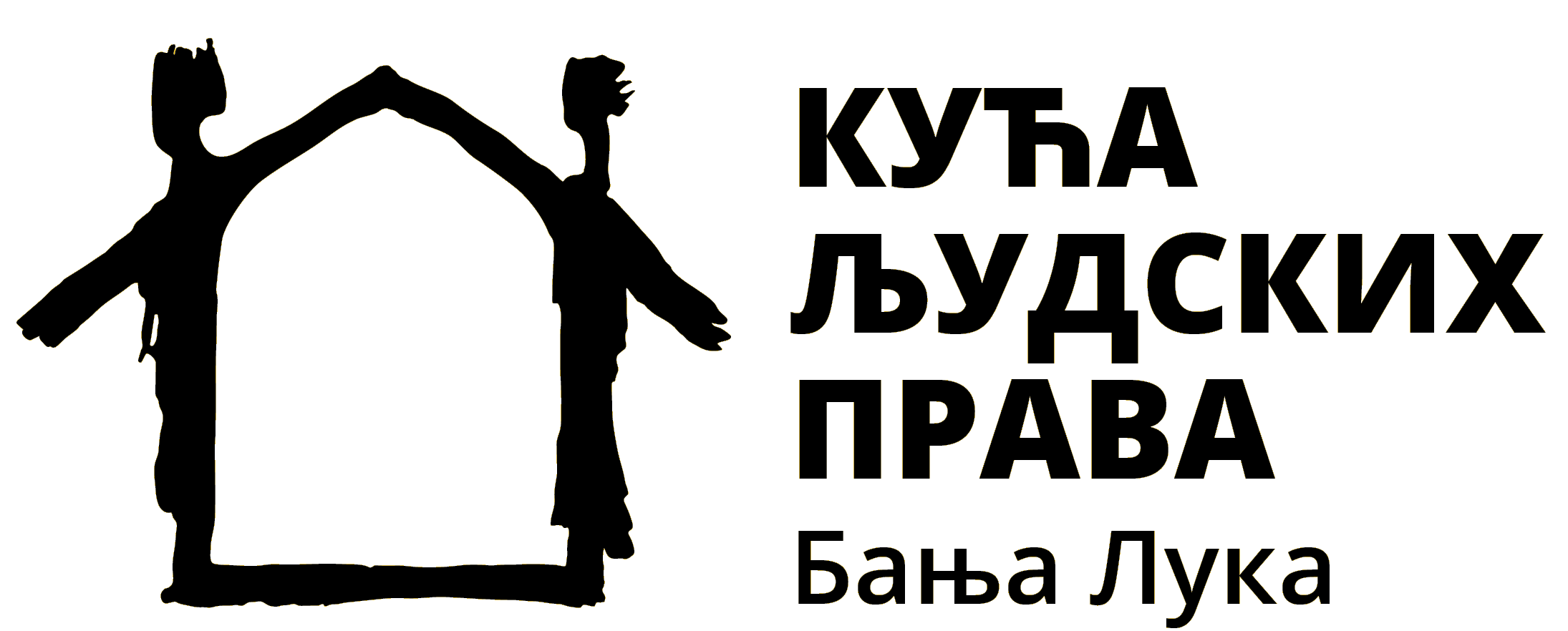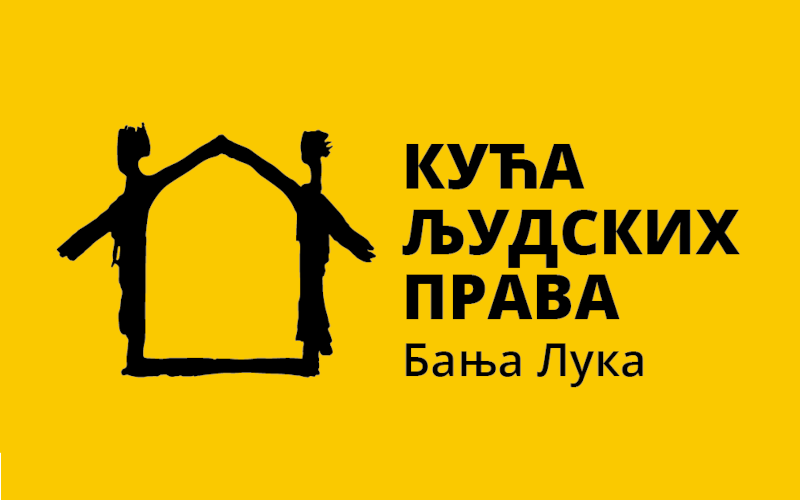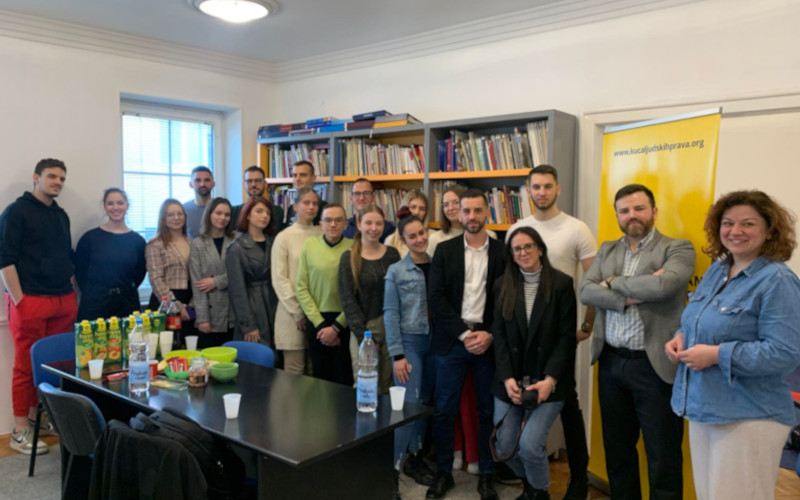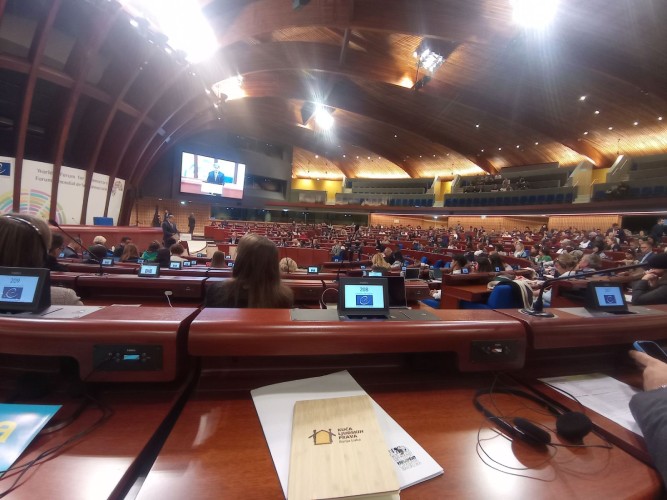The round table entitled “Human rights in the processes of European integration in the context of negotiations on BiH’s accession into the European Union” was held on September 12 in Banja Luka, and among other things, the importance of cooperation between human rights houses in the region and their growing importance as a new momentum in the protection of human rights was highlighted.
The round table was organized by the Human Rights House Banja Luka within the joint project of the Regional Network of Human Rights Houses, which are consisted of the Human Rights House Banja Luka, the Human Rights House Belgrade, the Human Rights House Zagreb and the Sarajevo Open Center.
Tea Pokrajčić from the Human Rights House Banja Luka said that the Human Rights House Banja Luka will continue to work on strengthening civil society and the legal state, and we invite all political actors, both domestic and international, to join us more decisively in this goal.
“Our work is not just a story about human rights, but about the daily struggles we have to protect fundamental freedoms in a society that is still dealing with the consequences of war, political divisions and economic poverty. Unfortunately, instead of progress, we are witnessing increasing threats to freedom of expression, assembly and association, with the simultaneous growth of anti-gender movements and nationalist narratives that push basic human rights into the background,” says Pokrajčić.
On its way to the European Union, Bosnia and Herzegovina must put human rights at the center of all reforms.
“We must not allow the process of European integration to be exclusively technical or political, but must be based on the values that are the backbone of European democracy. To date, we have not met any of the 14 key priorities, and corruption remains a major challenge. And while the majority of the citizens of this country want membership in the European Union and believe that the EU path of BiH has no alternative, our politicians use nationalism and populism to retain power, without real changes”, Pokrajčić points out.
The aim of this event was to encourage dialogue and exchange of experiences on the position of human rights in the process of European integration, with special reference to the current negotiations on the accession of Bosnia and Herzegovina to the European Union.
At the panel, it was stated that civil society is an important actor in the process of European enlargement, and Bosnia and Herzegovina is at a standstill on that path.
Bojana Selaković, coordinator of the National Convention on the EU in Serbia, assessed that the experiences of member countries confirm that civil society can speed up the process of European integration and bring significant benefits to citizens.
“Experience has really shown that all the countries that joined the EU could not do it without the active role of civil society. We also know this from the experience of the region, that is, countries that have progressed in the institutional sense”, said Selaković at the press conference.
Commenting on BiH’s standstill on the European path, she said that a parallel can be drawn with Serbia and the region.
“Whenever there is a standstill in European integration, it is because there is no clear political will and consensus of all actors in society about the perspective of a country. This is very pronounced in BiH, and the stagnation is a consequence of polarization. The official state agenda towards external actors is declaratively European, and in practice these aspirations are refuted”, Selaković told the media.
Alen Gudalo, coordinator of the Initiative for Monitoring the European Integration of BiH, pointed out that we are witnessing the narrowing of the space for civil society activities throughout BiH with an emphasis on the trends happening in the RS.
“We, as a whole society, have to react. In BiH, a large number of laws are adopted in an accelerated process, through non-transparent processes, so we have no insight into what is really going on. In order to have insight, we need a civil society that has a control system”, said Gudalo.
Ivan Novosel from the Human Rights House in Zagreb pointed out that a lot has changed since Croatia joined the EU.
As he added, joining the EU was an improvement for society as a whole, for citizens, for respect of human rights and the rule of law.
Photo: David Pajić/ Human Rights House Banja Luka



